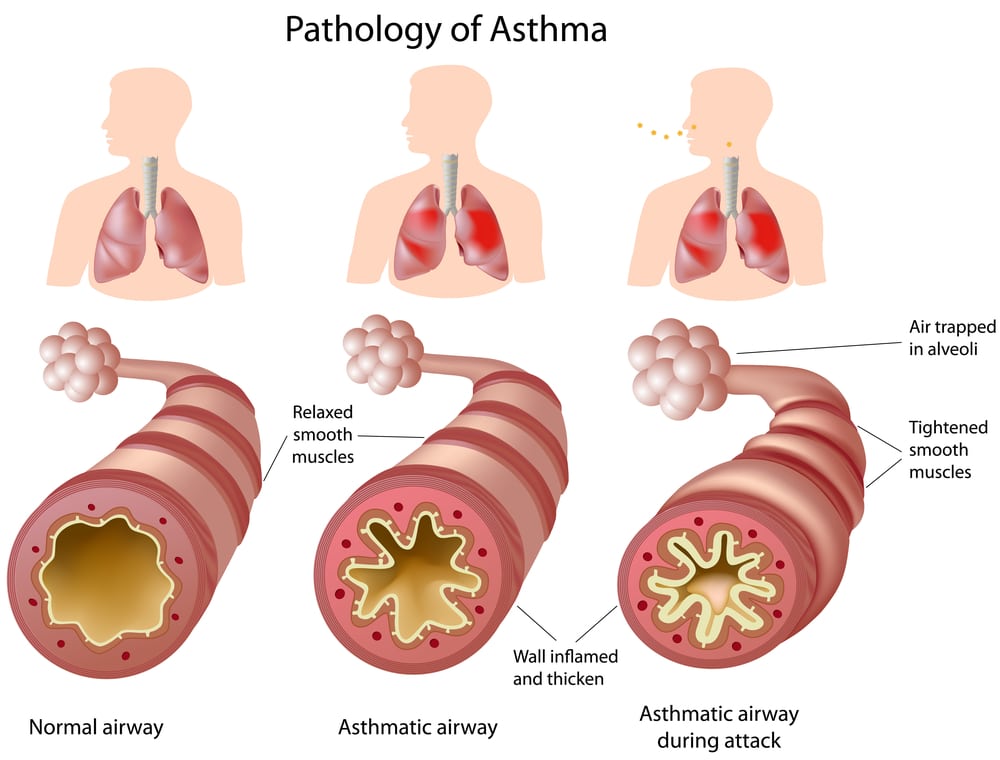Asthma and allergies are common conditions that affect millions of people worldwide. If you have asthma or allergies, it’s important to understand what these conditions are, their causes, and how to manage them. In this complete guide to facts of asthma and allergies for patients, we’ll cover everything you need to know about these conditions.
Understanding Asthma
Asthma is a chronic respiratory condition that affects the airways in your lungs. It can cause difficulty breathing, wheezing, coughing, and tightness in the chest.
Asthma prevalence in the United States is very high. It affects people of all ages, and it can be triggered by various factors such as allergies, exercise, and irritants like smoke and pollution.
The symptoms of an asthma attack can vary from person to person, and they may occur intermittently or persistently. Common asthma symptoms include:
Wheezing: a high-pitched whistling sound when breathing out
Shortness of breath: feeling like you can’t catch your breath
Chest tightness: a feeling of pressure or squeezing in the chest
Coughing: especially at night or early in the morning
There are several types of asthma, including:
Allergic asthma: triggered by exposure to allergens such as dust mites, pollen, and animal dander
Non-allergic asthma: triggered by irritants such as smoke, outdoor air pollution, and exercise
Occupational asthma: triggered by exposure to workplace irritants such as chemicals, dust, and fumes
Exercise-induced asthma: triggered by physical activity
If you suspect you have asthma, it’s important to see your healthcare provider for a proper diagnosis.
Your provider may perform a physical exam, lung function tests, and other diagnostic tests to confirm a diagnosis of asthma.

Understanding Allergies
Allergies occur when your immune system reacts to a harmless substance as if it’s a threat to your body. Common allergens include pollen, dust mites, animal dander, and certain foods.
When you come into contact with an allergen, your immune system releases chemicals such as histamine that can cause a range of symptoms, from mild to severe.
The symptoms of allergies can vary depending on the type of allergen and the severity of the reaction. Common symptoms of allergies include:
Runny or stuffy nose
Sneezing
Itchy or watery eyes
Skin rash or hives
Swelling of the face, lips, or tongue
There are several types of allergies, including:
Hay fever (allergic rhinitis): triggered by pollen, dust mites, and animal dander
Food allergies: triggered by certain foods such as peanuts, tree nuts, and shellfish
Insect sting allergies: triggered by the venom of stinging insects such as bees and wasps
Drug allergies: triggered by certain medications
If you suspect you have an allergy, it’s important to see your healthcare provider for a proper diagnosis. Your provider may perform a physical exam, skin tests, and other diagnostic tests to confirm a diagnosis of allergies.
The Connection Between Asthma and Allergies
Allergies and asthma are closely related conditions. In fact, many people who have asthma also have allergies. Allergies can trigger asthma symptoms in some people, and people with asthma are more likely to have allergic reactions to common allergens.
Common allergens that are asthma triggers include:
Pollen
Dust mites
Mold
Pet dander
Cockroaches
If you have both asthma and allergies, it’s important to manage both conditions together. This can help prevent asthma attacks and reduce allergy symptoms. Your healthcare provider can help you develop an asthma and allergy management plan that’s tailored to your specific needs.
Managing Asthma and Allergies
Strategies to manage asthma and allergies involves a combination of lifestyle changes, medications, and other treatments. Here are some strategies that can help you manage your asthma and allergies:
Identify and avoid triggers
Identifying and avoiding triggers can help prevent asthma attacks and reduce allergy symptoms. Common triggers include indoor allergens, tobacco smoke, pollution, and exercise. Work with your healthcare provider to identify your triggers and develop a plan to avoid them.
Take medications as prescribed
There are several medicines available to treat asthma and allergies, including:
Inhaled corticosteroids: used to reduce inflammation in the airways
Bronchodilators: used to relax the muscles in the airways
Antihistamines: used to reduce allergy symptoms
It’s important to take your medications as prescribed by your healthcare provider. This can help prevent asthma attacks and reduce allergy symptoms.
Consider allergy shots
Allergy shots, also known as immunotherapy, can be an effective treatment for allergies. They work by exposing you to small amounts of the allergen over time, which can help your body build up immunity to the allergen. Talk to your healthcare provider to see if allergy shots are a good option for you.
Create an asthma and allergy action plan
An asthma and allergy action plan is a written plan that outlines what to do in case of an asthma attack or allergic reaction. It includes instructions on how to use your medications, when to seek emergency medical attention, and how to prevent future attacks. Work with your healthcare provider to create an asthma and allergy action plan that’s tailored to your needs.
Coping with Asthma and Allergies
Living with asthma and allergies can be challenging, both physically and emotionally. Here are some strategies that can help you cope with these conditions:
Stay positive
Maintaining a positive attitude can help you cope with the challenges of living with asthma and allergies. Focus on the things you can do to manage your symptoms, and don’t be afraid to ask for help when you need it.
Seek support
Support from family, friends, and support groups can be invaluable when coping with asthma and allergies. Consider joining a support group or connecting with others who have similar experiences.
Practice self-care
Taking care of yourself is important when managing allergies and asthma symptoms. Get enough sleep, eat a healthy diet, and exercise regularly. Taking care of your mental health is also important. Consider practicing relaxation techniques such as deep breathing, meditation, or yoga.
Travel smart
If you’re planning to travel with asthma and allergies, it’s important to plan ahead. Pack your medications and an asthma and allergy action plan, and research the allergens and pollution levels in your destination.
Conclusion
Asthma and allergies are common conditions that can have a significant impact on your quality of life. Understanding these conditions and how to manage them is essential for living a healthy and happy life. Work with your healthcare provider to develop an asthma and allergy management plan that’s tailored to your specific needs. With the right treatment and support, you can manage your asthma and allergies and live life to the fullest.
References:
American Academy of Allergy, Asthma & Immunology. (2021). Asthma. https://www.aaaai.org/conditions-and-treatments/asthma
American College of Allergy, Asthma & Immunology. (2021). Allergy overview. https://acaai.org/allergies
Centers for Disease Control and Prevention. (2020). Asthma. https://www.cdc.gov/asthma/default.htm
Mayo Clinic. (2021). Allergies. https://www.mayoclinic.org/d





